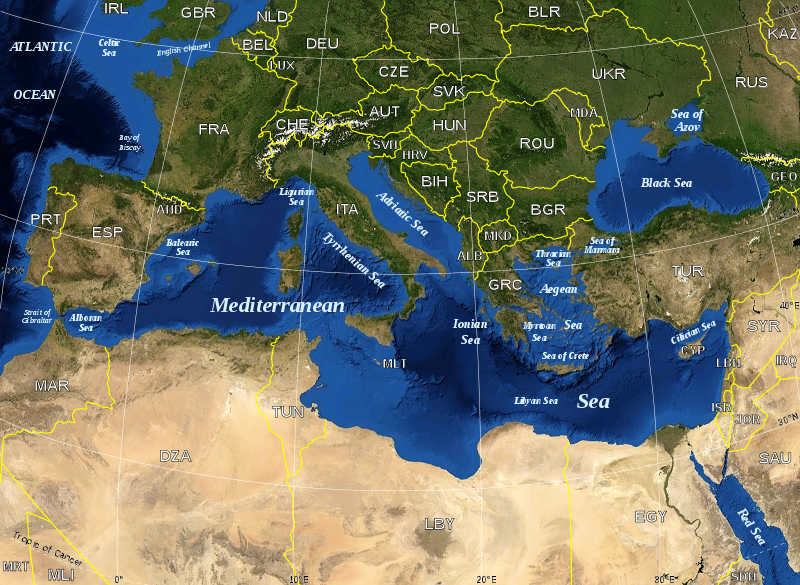Water bodies have always made an impact on the life of human beings, and therefore, you see that most of the top cities lie around famous oceans, seas, lakes and rivers that provide these places with water, which is important for daily life activities and existence. If you normally connect water bodies with beauty and romanticism then you should look out for Mediterranean Sea, which is considered to be one of the most beautiful water bodies in the world. However, it has been now proven that this beautiful water body once went completely dry.
Although it does sound completely unbelievable that huge water body like Mediterranean Sea can go dry but scientists and many explorers across the world have now concrete evidence that Mediterranean Sea once had evaporated because of various climatic and natural conditions that were created. One of the main theories that provide concrete evidence about this is that in 1968 many geologists were carrying out seismic surveys to understand more about the earth crust and its movements. However, when they started digging the Mediterranean Sea floor, they found samples of arroyo gravel, rock salt, gypsum and anhydrite, which are only found on land and not in water. The layer of rock found under the sea floor was more than three kilometers thick, and it provided clear evidence that somewhere in history Mediterranean Sea floor went dry and was exposed completely.

It is also believed that more than five million years ago the Strait of Gibraltar might have closed down and therefore, there was no inflow of water in the Mediterranean Sea. Hence, the water level in the Mediterranean Sea remained the same. However, with the passing of time this water body began to evaporate and slowly over a period of thousand-year Mediterranean Sea floors became visible. Many scientists even believe that glaciations could also be one of the main reasons for the drying of the Mediterranean Sea. On the other hand, there are some experts who believe that the increasing atmospheric pressure could have led to increase in temperatures, which would have dried up the Mediterranean Sea faster than it normally should.
